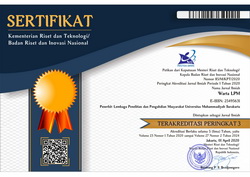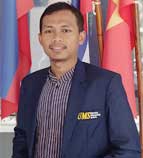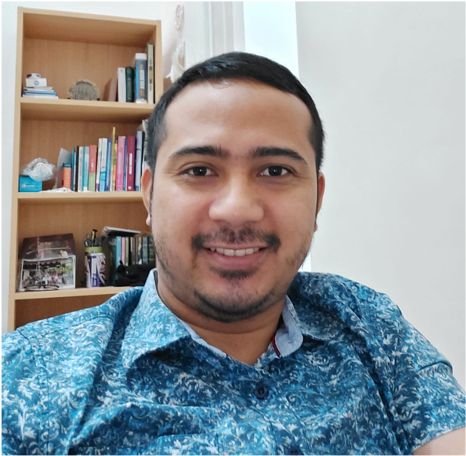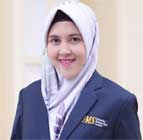Wisata Pendidikan Agro Terintegrasi: Penyusunan Rencana Induk Desa Dawung, Karanganyar melalui Pendekatan Partisipatif
DOI:
https://doi.org/10.23917/warta.v27i1.2673Keywords:
Desa Wisata, Desa Dawung, Partisipatif, Wisata Pendidikan Agro Terintegrasi, Rencana IndukAbstract
Based on the Spatial Plan of Karanganyar Regency, Dawung Village is mandated as an agropolitan strategic area for food security or wet agriculture. Besides, it is also a center for processing agricultural food crops and local trade. In contrast, the number of farmers decreases (0.8% per year), increasing the risk in the agricultural sector. On the other hand, this village has tourism potential, Kembang Desa, which is appointed as the leading tourist attraction. Kembang Desa was developed in 2020, and after it officially opened, it was attractive, as can be seen from the visitors number that reached 200 to 500 at the weekend. However, the COVID-19 pandemic has significantly affected the number of visitors, and the village government is facing the operational budget. This situation continues because of many new tourist attractions competitors opened. Hence, economic development and village potential require a reference as a basis for the village government in determining future policies. This community service activity aims to compile a master plan for tourism and economic development in Dawung Village through Integrated Agro Edu Tourism, which focuses on developing agro-tourism integrated with the agricultural system with an tourism education approach. The method used to compile the master plan consists of three stages: socialization to the Village government about the initial design concept. The second stage is Focus Group Discussion (FGD) activities to obtain input regarding potentials, problems, design concepts, and specific needs from partners; the third stage is master plan design finalization. The community service results in a master plan of a Dawung Village hotspot as the guidance for developing local potential so that Dawung Village can be more advanced and competitive.
Downloads
References
Aguswan, A., Saputra, T., Astuti, W., Eka, E., & Syofian, S. (2020). Bimbingan Teknis Perencanaan Partisipatif Pembangunan Desa di Kecamatan XIII Koto Kampar, Kabupaten Kampar. Warta LPM, 23(1), 63–72. https://doi.org/10.23917/warta.v23i1.9680
Bisjoe, A. R. H. (2018). Menjaring data dan informasi penelitian melalui FGD (Focus Group Discussion): belajar dari praktik lapang. Buletin Eboni, 15(1), 17–27.
Dewi, N. P. A., Sujana, I. N., & Meitriana, M. A. (2020). Evaluasi Program Sistem Pertanian Terintegrasi (Simantri). Jurnal Pendidikan Ekonomi Undiksha, 12(1), 107. https://doi.org/10.23887/jjpe.v12i1.23076
Faridah, E. Y. (2021). APLIKASIA: Jurnal Aplikasi Ilmu-ilmu Agama PERANCANGAN MASTER PLAN KEBUN EDUWISATA BENDOSARI DENGAN MERESPON KEADAAN ALAM. APLIKASIA: Jurnal Aplikasi Ilmu-Ilmu Agama, 21(1), 13–26. https://ejournal.uin-suka.ac.id/pusat/aplikasia/article/view/2488
Hiernimawati, H., Nielwaty, E., & Aliyana, A. (2018). Partisipasi Masyarakat Dalam Pembangunan Desa Sungai Buluh Kecamatan Bunut Kabupaten Pelalawan. Jurnal Niara, 11(1), 84–95.
Irwan, I., Latif, A., & Mustanir, A. (2021). Pendekatan Partisipatif Dalam Perencanaan Pembangunan di Kabupaten Sidenreng Rappang. GEOGRAPHY Jurnal Kajian, Penelitian Dan Pengembangan Pendidikan, 9(2), 137–151. https://journal.ummat.ac.id/index.php/geography/article/view/5153
Iskandar, A. H. (2020). SDGs desa: percepatan pencapaian tujuan pembangunan nasional berkelanjutan. Yayasan Pustaka Obor Indonesia.
Jubaedah, S., & Fajarianto, O. (2021). Model pengembangan desa wisata berbasis kearifan lokal sebagai strategi peningkatan ekonomi masyarakat di desa cupang kecamatan gempol kabupaten cirebon. Abdimas Awang Long, 4(1), 1–12.
Nugraha, Y. E. (2021). Sosialisasi Sadar Wisata Sebagai Upaya Pengembangan Desa Wisata Berbasis Masyarakat di Desa Fatukoto. Jurnal Abdimas Pariwisata, 2(1), 14–22.
Pasaribu, H. (2021). Politeknik Wilmar Bisnis Indonesia Deli Serdang , Sumatera Utara.
Riadi, S., Normelani, E., Bachri, A. A., Hidayah, N., & Sari, Y. P. (2020). Rancangan Atraksi Wisata Edukasi Di Kampung Hijau Kota Banjarmasin. J-PIPS (Jurnal Pendidikan Ilmu Pengetahuan Sosial), 7(1), 37–44. https://doi.org/10.18860/jpips.v7i1.10364
Sekarningrum, B., Sugandi, Y. S., & Yunita, D. (2020). Sosialisasi dan Edukasi Kangpisman (Kurangi, Pisahkan dan Manfaatkan Sampah). Kumawula: Jurnal Pengabdian Kepada Masyarakat, 3(1), 73. https://doi.org/10.24198/kumawula.v3i1.25244
Siregar, M. A. R. (2023). Peningkatan Produktivitas Pertanian Melalui Penerapan Sistem Pertanian Terpadu. 1–10.
Wirdayanti, A., Asri, A., Anggono, B. D., Hartoyo, D. R., Indarti, E., Gautama, H., S, H. E., Harefa, K., Minsia, M., Rumayar, M., Indrijatiningrum, M., Susanti, T., & Ariani, V. (2021). Pedoman Desa Wisata. 1 s.d 96. https://www.ciptadesa.com/2021/06/pedoman-desa-wisata.html
Downloads
Submitted
Accepted
Published
How to Cite
Issue
Section
License
Copyright (c) 2024 Warta LPM

This work is licensed under a Creative Commons Attribution 4.0 International License.















